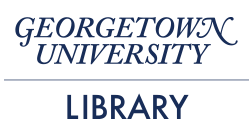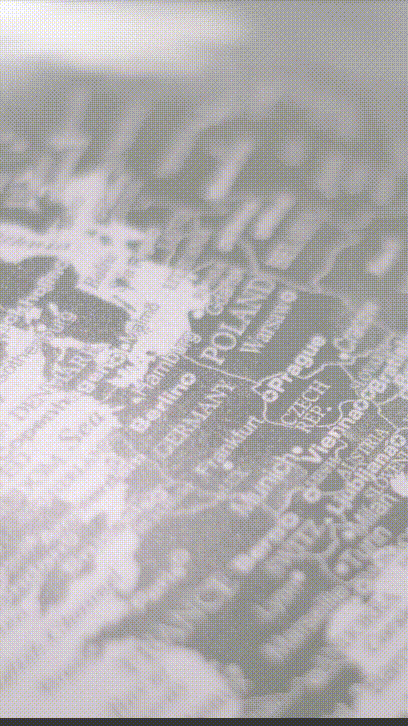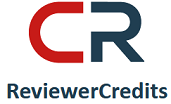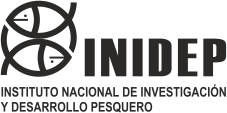About the Journal
Marine and Fishery Sciences (MAFIS) is the new scientific publication that replaces "Revista de Investigación y Desarrollo Pesquero" of INIDEP, which began to be published in 1979. New name and presentation format of MAFIS begins with number 32 volume 1 of 2019, with the intention of reaching a greater audience of marine and fishery science specialists by improving online version through the implementation of the OJS (Open Journal System) and indexing.
Marine & Fishery Sciences (MAFIS) is an Open Access charge-free journal edited by the Instituto Nacional de Investigación y Desarrollo Pesquero (INIDEP) that publishes peer-reviewed articles of original investigations not published elsewhere except as a brief abstract in a scientific meeting or symposium. It is published four times a year (January, April, July and October) aiming all work and studies on applied or scientific research within the many varied areas of the marine, coastal and brackish waters, such as Biology and Ecology, Biodiversity, Oceanography, Limnology, Coastal Management, Fisheries, Aquaculture, Ecosystems, and their social-related aspects that directly or indirectly affect to human populations including conservation and environmental impact at a regional level. Freshwater content is restricted to Fisheries and Aquaculture Production only. Studies in freshwater (such as biology, growth, nutrition, health, etc.) that do not integrate the two previously mentioned will not be considered. The quality of the journal is guaranteed by the editorial board, consisting of renowned researchers in the field of marine sciences. Contributions to and publications in MAFIS are free of charge. Submissions should be written in Spanish or English in one of the following categories:
Original Research Papers are generally based upon hypothesis-driven research providing new information to the knowledge base, not just to confirm previously published work. Descriptive studies presenting novel information or observations and/or scholarly insight that contributes to advancement of the state of information on a given scientific topic are also allowed.
Review Articles are welcome and should cover either narrow disciplinary subjects or broad issues requiring interdisciplinary discussion. They should contain not only an up-to-date review of scientific literature but also substantial scholarly interpretation of the quality of existing data, the status of knowledge, and the research required to advance knowledge of the subject are essential. Reviews consisting solely of a summary of published data without interpretation leading to new insights or recommendations for new research directions will be returned to the author without review. Structured reviews and meta-analyses must conform to PRISMA guidelines (see https://doi.org/10.1016/j.mex.2019.100777 and references therein).
Notes should differ from full papers on the basis of scope or completeness, rather than quality of research. They may report significant new results which represent a major breakthrough or new discovery arising from problems with narrow, well defined limits, or important findings that should therefore be published quickly. They should not be used for preliminary results. Papers must contain sufficient data to establish that the research has achieved reliable and significant results. Their text should neither exceed 1500 words (approximately six pages of typescript) excluding keywords, tables and references, nor be divided up into conventional sections.
Technical Papers should present new methods, devices or procedures for either research methodology or analysis-related techniques. It may also describe the state of resource, a technical or scientific research problem and provides a new approach.
Audience
It is aimed at researchers, professionals and students from the different branches of marine and fisheries sciences, such as Marine Biologist, Fisheries Scientist, Ecologists, Oceanographers, Aquaculturists.
Abstracting & Indexing
DOI Crossref; Latindex Cat. 2.0; AmeliCA.org; Aquatic Sciences and Fisheries Abstracts (ASFA); Agrindex; Zoological Records (BIOSIS Database); AquaDocs; CORE; BASE; MIAR, etc.
Studies in animals
All animal experiments should comply with the ARRIVE guidelines and should be carried out in accordance with institutional, national and international guidelines concerning the use of animals in research and/or the sampling of endangered species. Authors should clearly indicate in the manuscript that such guidelines have been followed.
Declaration of interest
All authors must disclose any financial and personal relationships with other people or organizations that could inappropriately influence (bias) their work. Grants or other funding permitting the realization of the research must be stated. Please use the Acknowledgment section to do that.
Submission declaration
Submission of an article implies that the work described has not been published previously (except in the form of an abstract, a published lecture or academic thesis), that it is not under consideration for publication elsewhere, that its publication is approved by all authors and tacitly or explicitly by the responsible authorities where the work was carried out, and that, if accepted, it will not be published elsewhere in the same form or in any other language without the written consent of the copyright-holder.
Authors utilizing Artificial Inteligence (AI) tools during manuscript preparation, image creation, data collection and/or analysis should disclose its use and specify the tools employed in the Methods section or its equivalent. Authors bear full responsibility for all content in their manuscript, including sections generated with AI tools (if any), and are accountable for ensuring compliance with publication ethics. For directives on AI use and ethics, author should refer to the Committee on Publications Ethics (COPE) statement.
Publication Frequency
CAP (Continuous Article Publishing): Each article is published immediately after peer-review and final approval.
Copyright
Authors of articles published in Marine and Fishery Sciences retain copyright on their articles, except for any third-party images and other materials added by Marine and Fishery Sciences, which are subject to copyright of their respective owners. Authors are therefore free to disseminate and re-publish their articles, subject to any requirements of third-party copyright owners and subject to the original publication being fully cited. Visitors may also download and forward articles subject to the citation requirements. The ability to copy, download, forward or otherwise distribute any materials is always subject to any copyright notices displayed. Copyright notices must be displayed prominently and may not be obliterated, deleted or hidden, totally or partially.
Open Access
This journal offers authors an Open Access policy. Users are allowed to read, download, copy, distribute, print, search, or link to the full texts of the articles, or use them for any other lawful purpose, without asking prior permission from the publisher or the author. This is in accordance with the BOAI definition of Open Access.
Peer review
This journal operates a double blind review process. All contributions will be initially assessed by the editor for suitability for the journal. Papers deemed suitable are then typically sent to three independent expert reviewers to assess the scientific quality of the paper. The Editor is responsible for the final decision regarding acceptance or rejection of articles. The Editor's decision is final.
iThenticate
This OJS plugin permits automatic submission of uploaded content to the iThenticate service for plagiarism checking.
Licencing
Distribution of contents of this journal are licenced by Creative Commons Attribution License BY-NC-SA 4.0:
-
Attribution — You must give appropriate credit, provide a link to the license, and indicate if changes were made. You may do so in any reasonable manner, but not in any way that suggests the licensor endorses you or your use.
-
NonCommercial — You may not use the material for commercial purposes.
-
ShareAlike — If you remix, transform, or build upon the material, you must distribute your contributions under the same license as the original.
![]()
























